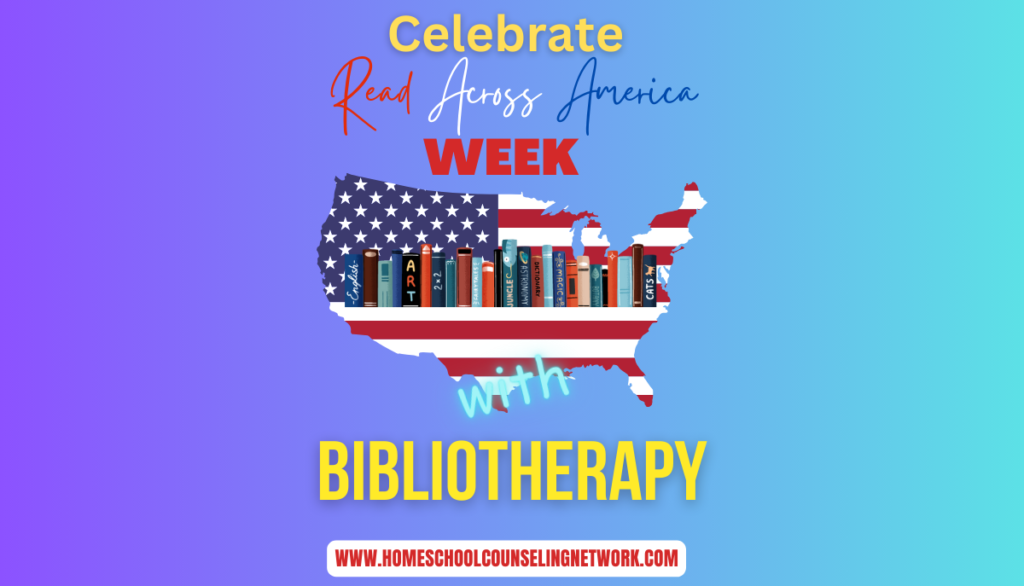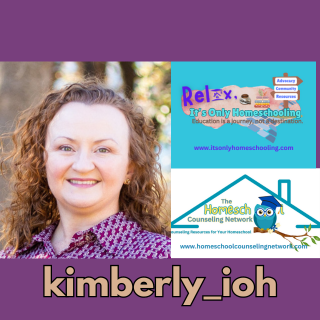How To Celebrate Read Across America Week With Bibliotherapy
**This post contains affiliate links.**
For the Love of Reading
Known as America’s largest celebration and appreciation for the written word, Read Across America Week takes place the first week in March.
Kicking off the week-long festivities typically begins with the March 2nd birthday celebration of Theodore Seuss Geisel, the beloved children’s author and cartoonist of more than 60 books. Better known by his nom de plume, Dr. Suess, this author/illustrator published his first children’s book, And to Think That I Saw It On Mulberry Street in 1937.
Many years of putting pen to paper brought audiences beloved characters such as The Cat in the Hat, Green Eggs and Ham, The Grinch Who Stole Christmas, and Horton Hears a Who! In 1984, Geisel was awarded the Pulitzer Prize for nearly half a century of contributions to American Literature.
Celebrated by educators, public, private, and homeschoolers alike, Read Across America Day and Week is a joyous occasion for bibliophiles everywhere.

What is Bibliotherapy?
If bibliophiles are lovers of books, I’ll bet you can guess what bibliotherapy is!
You nailed it! Using books as a medium to help facilitate the healing process in therapy.
Bibliotherapy is a form of creative arts therapy that uses literature to help you improve your life by providing information, support, and guidance through reading books and stories. Books and other written material can influence human emotions and provide wisdom, emotional connection, insight, and comfort.
Bibliotherapy: Definition, Types, Techniques, and Efficacy (verywellmind.com)
How Bibliotherapy Can Benefit Homeschooling Families
Understanding abstract concepts such as feelings, anxiety, depression, or even grief can sometimes be difficult for young children. Who am I kidding, it can be difficult for all ages, tweens, teens, and adults alike. Learning how to make sense of what is going on inside our minds and within our bodies can present a challenge. Then, trying to figure out what to do next? Well, you get the idea.
By making the abstract more concrete through a story you can make the concept tangible. For example, having the reader go through an experience with a character in a story that is comparable to what the reader is facing in real life and come out the other side to a resolution can help bring about awareness and insight.
Notice, I did not say happy ending, I said resolution. Life has trials. Trials bring about growth. (That’s why we call them growing pains). Journeying with a character who is facing trials, learning to cope, and growing along the way can be incredibly therapeutic and cathartic for the reader.
In the same way that health curricula can help us teach our homeschooling students about nutrition, exercise, and how to best care for one’s growing and changing body, bibliotherapy can provide students and families with information about coping with the loss of a loved one (grief), learning how to manage big feelings (emotional regulation), or avoiding harmful substances (substance abuse).
Bibliotherapy is not for students and kids alone. Grown-ups can benefit, too. Managing depression or anxiety, coping with divorce, improving self-esteem, and fostering healthy relationships are just a few of the therapeutic goals that bibliotherapy can help clients achieve.
Bibliotherapy is also versatile. The technique can be practiced with the aid of a therapy professional or without.
Bibliotherapy can be practiced in either individual or group therapy sessions, or without the guidance of a therapist at all. When conducted with a therapist, bibliotherapy is rarely used as a primary or sole modality of treatment; rather, it tends to be used in conjunction with other approaches such as cognitive-behavioral therapy or psychodynamic therapy.
Bibliotherapy is inexpensive and easy to apply. Thus, it may be particularly useful for patients short on time, those with limited funds, or those whose mental health concerns are mild to moderate.
Bibliotherapy | Psychology Today
Bibliotherapy is another tool for our homeschooling, parenting, and wellness toolbox.
My Experience With Bibliotherapy
When it comes to using literature as a modality for education or healing, I am all in! All the books, all the time.
We are voracious readers in our house, reading for recreation and information.
In my pre-homeschool mommy life when I was a therapist in private practice, I often used bibliotherapy to help clients overcome various presenting problems. From healing from childhood trauma to coping with loss to setting healthy boundaries, if my client was open to a little in-between-session homework reading assignment, I was game to include the modality as part of my treatment plan.
But my love for the written word and its healing power did not stop at my office door.
Frequently, throughout my life, I have turned to books to help me through life’s challenges. On a more personal note, there is one book above all others that I have found incredibly healing and comforting – the Holy Bible. I can stand on the certainty of God’s word when I am certain of nothing else.
I have also used bibliotherapy in my parenting and homeschooling, particularly to help my son cope with his learning challenges. By educating him about his diagnoses, I not only help him put a name to his struggles but also help him create strategies for overcoming them as well as learning to accept himself just as he is because he is fearfully and wonderfully made.
From board books to picture books and early readers to middle-grade novels, I have used bibliotherapy to teach my son gratitude, empathy, sharing, sportsmanship, and stewardship just to name a few. He has learned how to challenge negative self-talk, gained a new appreciation for diversity, and learned how to handle conflict with peers.

More Resources About Bibliotherapy
For more information about bibliotherapy, check out the links below:
Bibliotherapy | Psychology Today
Bibliotherapy (goodtherapy.org)
Bibliotherapy Resources – Book Therapy
International Federation for Biblio Poetry Therapy (ifbpt.org)
Bibliotherapy Reading Lists
These Pins are just a sample of the types of books you can find to help support you on your bibliotherapy journey.
We hope this post has inspired you to curl up with a good book.
Keep In Touch
Be sure you do not miss a blog post by signing up for our email list, liking our Facebook, Instagram, Linked In, or Pinterest pages, or subscribing to our YouTube channel.
Like what you see here? Sharing is caring!
Blessings,
Kimberly Bennett, LPC
IOH Mom
Founder/CEO, It’s Only Homeschooling
Founder/CEO, The Homeschool Counseling Network

This website is not a professional counseling website and nothing here should be construed as professional counseling advice. Although Kimberly Bennett, LPC is a Licensed Professional Counselor, she is not your counselor, and no counselor-client relationship is established unless she has signed an agreement with you. All information provided through this website is for informational and educational purposes only.